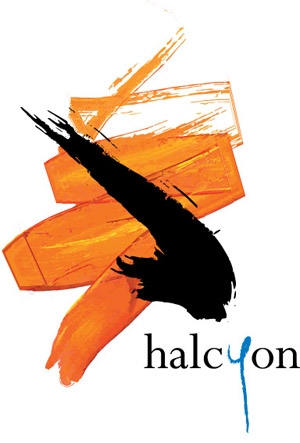FOUR WINDS FESTIVAL
Bermagui March 21-23 2008
Sydney Morning Herald, March 2008
Reviewed by Harriet Cunningham
The artistic director of this year’s Four Winds Festival, Christopher Latham, is a man with ideas – and he is not afraid to use them. His second and final offering for the bienniel festival took as a template the ground-plan of the Villa Rotunda of the Renaissance architect Andrea Palladio. The contents of the rooms were inspired by the weekend’s serendipitous convergence of cultural festivals: Easter, Purim, Holi, Paramita Day and Mawlid an-Nabi all fell on this year’s autumn equinox. It was exotic and, at times, quixotic.
Thankfully, in addition to big ideas, Latham has impeccable music tastes and a handy knack for bringing together some of Australia’s classiest musicians. So if at any point the riot of ideas became laboured, the beautiful sounds flooding across the earthly paradise of the rolling South Coast landscape made it on the whole easy to forgive.
A quick pick of these sounds, in no particular order: a miraculously beautiful performance of Vivaldi’s Gloria, sung one voice to a part by the vocal group Halcyon; Ross Edward’s funky Mantras And Alleluyahs, featuring the South Coast choir Heartsong; Vivaldi’s Four Seasons on recorder, and a hit-and-miss Brandenburg concerto; a monsoon raga from Manjiri Kelkar, surfing a sea of umbrellas; Sephardic melodies from the heavenly voice of Mina Kanaridis; Sufi works from Omar Faruk Tekbilek; and claustrophobic tintinnabulations of gongs and prayer bowls from the combined forces of Synergy and TaikOz.
One of the highlights was a repeat performance of Steve Reich’s massive Tehillim, featuring Halcyon, Synergy and the specially assembled Four Winds Philharmonia, all held together with energetic delicacy by Roland Peelman, followed by a world premiere of Liza Lim’s Weaver of Dreams, for solo recorder, played with astonishing virtuosity and charm by Genevieve Lacey.
The other main focus – in case we needed more to think about – was the music of the guest of honour Peter Sculthorpe. His String Sonata No. 4, arranged for string orchestra and didgeridoo, played by William Barton, emerged almost inevitably from the backdrop of native bird song to open the program. Cello Dreaming, towards the end of Sunday, was an intense, heartfelt close. Perhaps most moving was Sculthorpe’s own reading of D.H. Lawrence’s Song Of A Man Who Has Come Through. Words and silence were, for a moment, king in this sea of music. The artistic directorship of the Four Winds Festival passes to the recorder player Lacey. She inherits a spectacular setting, a loyal and musically adventurous audience and a tough act to beat.

